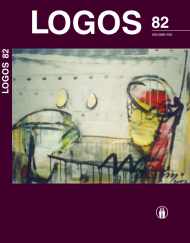Tango Ir Milongų Motyvai Jorge Luiso Borgeso Kūryboje
Motives of Tango and Milongas in Texts of Jorge Luis Borges
Author(s): Agnieška JuzefovičSubject(s): Theatre, Dance, Performing Arts, Music, Cultural Anthropology / Ethnology, Hermeneutics
Published by: Visuomeninė organizacija »LOGOS«
Keywords: Borges; Buenos Aires; tango; milonga; conflicting; dramatic lyric; dialogue;
Summary/Abstract: The paper deals with relation of famous Argentinian writer J. L. Borges toward tango music and dance, which appeared and developed in Buenos Aires city. While analyzing Borges’ essays devoted to the topic of Buenos Aires culture and poems with tango lyrics, the author argues that this writer was familiar with tango lyrics and social tango dance evenings (milongas) and was aware of their essential interfaces with Buenos Aires and Porteño culture. Borges competence in the field of tango was noted by such famous representatives of tango culture like Astor Piazzolla, who wrote a music background for writers’ poems, published in For the Six Strings. During recent decades this topic has also become popular among philologists and cultural theorists who are doing research on Borges’ heritage. The author tries to answer a question if Borges was right with his skeptical opinion about dramatics and sentimentalism of tango lyric. The author analyzes relationship with tango lyric, feelings and reflection and tries to resolve contradiction between Borges approach and Discepolo sentence, that “the tango is a sad thought that one can dance“. Finally the author discloses another reason which causes Borges interest toward tango music, lyric and dance – its openness for dialogue, which has place when a couple is dancing as well when one is listening tango music and lyric. Present research shows that tango played important place in Borges life and did essential influence for his creative heritage.
Journal: LOGOS - A Journal of Religion, Philosophy, Comparative Cultural Studies and Art
- Issue Year: 2015
- Issue No: 82
- Page Range: 154-162
- Page Count: 9
- Language: Lithuanian

